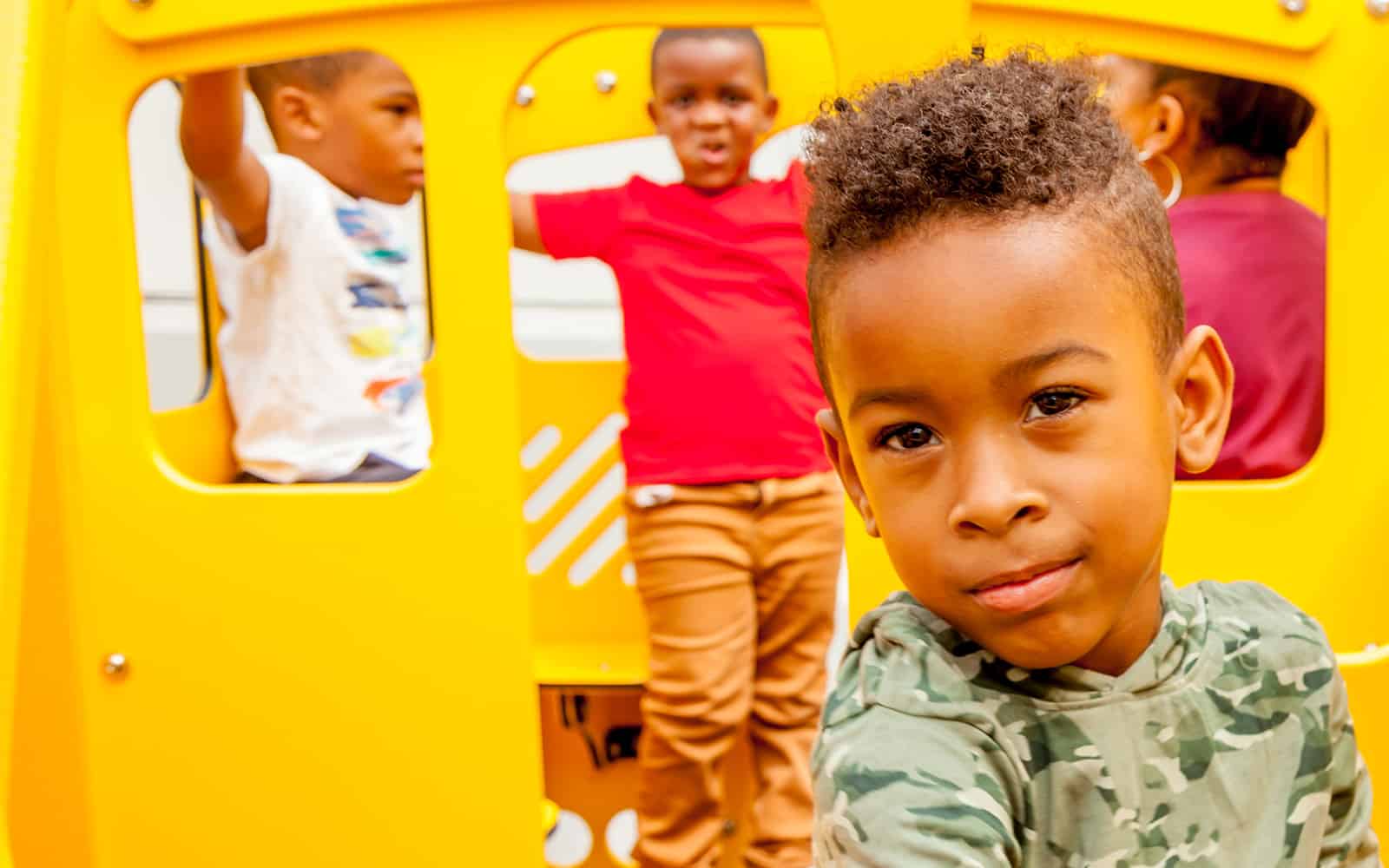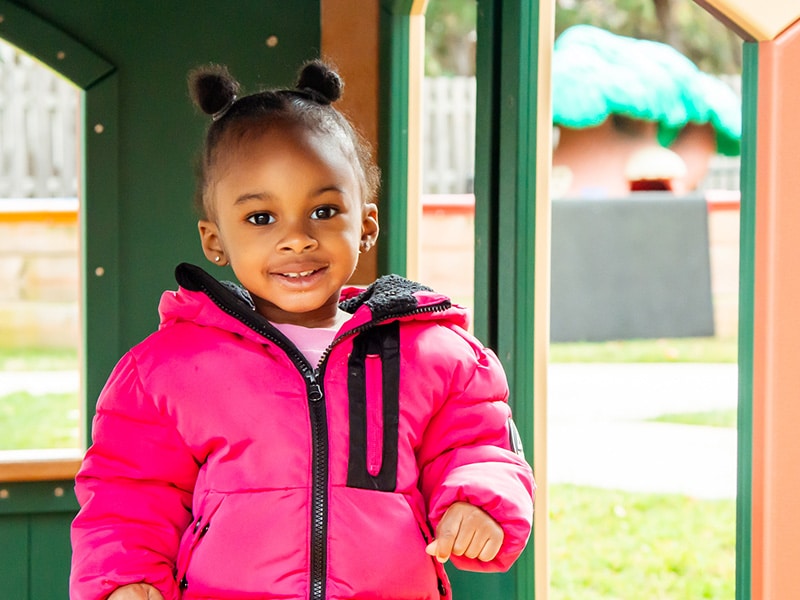Can you believe it’s almost time for your child’s first day of kindergarten? This can be exciting and overwhelming for many parents and children. To help you prepare, we asked a Start Early expert for advice for parents. Lisa LaRue a teacher at Educare Chicago, a program of Start Early, shared her tips to help you and your child have a successful school year.

Ready for Kindergarten: 10 Tips to Prepare for the Big Day
Starting kindergarten can be exciting, stressful, and scary at the same time. Here are expert tips to help your little one have a successful school year.
Stay Connected
Sign up to receive news, helpful tools and learn about how you can help our youngest learners.
Checklist To Navigate the Transition to Kindergarten
The start of kindergarten can be exciting, stressful, intimidating and scary at the same time. As a parent, you can help ease some of your child’s worries and fears by having conversations around their feelings. By learning as much as you can about the kindergarten experience, you’ll be able to better explain the transition to your child and they’ll understand how fun kindergarten will be!
- Meet the Teacher Before the First Day of School
If you can, schedule a time for you and your child to meet their kindergarten teacher before the first day of school. This will give your child the chance to become comfortable with the teacher. You can also let the teacher know about your child’s preferences, temperament, strengths and weaknesses. For example, if your child had trouble with transitions in preschool, explain how you and the preschool teacher helped them overcome that challenge. The kindergarten teacher will appreciate your tips! You can also talk about your aspirations for your child and what you hope your child will learn in the upcoming year. Ask how you can be involved in the classroom. Be sure to share your contact information and let the teacher know the best way to reach you. - Set a Consistent Routine Before School Starts
A consistent morning and evening routine will help your child feel prepared for the first day of kindergarten. Young children benefit from routines because when they know what will happen next they are less prone to find changes stressful. Set a bedtime to help your child get a good night’s rest. In the morning, leave enough time for getting dressed, eating breakfast and packing backpacks. Start your routine a few weeks before kindergarten so you know how long it will take to get ready. Be sure to have a goodbye ritual like a high five, blowing a kiss or giving a hug to help your little one understand that it is time for you to leave, this will help them feel less anxious knowing that you are going to return later. - Do a Dry Run
A few days before the first day of school, do a dry run of your morning routine, including going to school. You can walk or drive to school, or walk to the bus stop with your child. Show your child the door they will walk in on the first day of school. Ask the school what the pick-up and drop-off policies are. Some schools allow parents to come into the classroom to drop their children off, and others have a different meeting point. Not only will you find out exactly how long your morning routine takes, you’ll also give your child a better sense of what the day will look like to prevent first-day-of-school anxiety. While you are in the classroom, you can discuss with your child what is the same and what is different about this classroom and their old preschool classroom. Do they have the same areas? Are there desks? What is not there? You can also ask the teacher if your child can bring in a family picture or something special to add to their cubby to feel more comfortable. You can also watch YouTube videos of kindergarten classrooms together and even role play different school scenarios at home if your child has more questions or wants to see more examples. - Find Out What Skills the Teacher Expects Children to Have on Day One
Kindergarten teachers may expect children to be able to handle their emotions, articulate their needs, listen to directions, raise their hand before talking, write their name, and recognize shapes and colors on the first day of school. Find out what the expectations are in advance and ask for tips on how to prepare your child for any skills they are still working on. If your child has mastered those skills, ask the teacher what will be done to challenge your child in the classroom. - Read to Your Child
Check out our list of recommended books below for kindergarten students. Start reading books before school starts during storytime so that your child has a better idea of what going to school will be like. - Be an Advocate
If your child needs any special services, talk to the administration and the classroom teachers in advance to find out who provides them. Ask if the services are provided inside or outside the kindergarten classroom. If your child has an individualized education plan from preschool, find out how that plan transfers over to kindergarten. - Network With Other Parents
Talking with other parents is a great way to build a support system to help you through all the challenges of parenthood. Ask the school what supports are available for parents and what opportunities are provided for parents to meet, such as parent groups, school councils, or other committees that you can join. - Prepare for Breakfast and Lunch
Find out if your school provides breakfast and/or lunch and plan accordingly. Your child may be used to eating at certain times at home or at an early childhood center, so explain how mealtimes may be changing. If your child will be buying lunch, get a menu from the school. Find out how food preferences are honored. For instance, some schools ask for a doctor’s note for food allergies. - Decrease Naptime
Some schools may offer a resting period, but many don’t. So it’s a good idea to wean children off naps before the first day of kindergarten. - Make Afterschool Plans
If your child will be in after school care, make those arrangements as soon as possible. Find out what afterschool care options your school offers and how much it costs. Make sure your child knows what the plans are and that you pick up your child on time or early so they don’t get anxious waiting for you. Create a backup plan with other parents, who you can rely on to pick up your child if you are running late.
About the Author

Lisa LaRue
Teacher Assistant, Educare Chicago
Lisa has worked in the early childhood field for over 27 years and is an expert in preparing children for kindergarten.
More Like This
Take Action
Raise your voice and encourage lawmakers to prioritize early learning and care at the local, state and federal level.
Support Our Work
Together, when we start early, we can close the opportunity gap and ensure every child has a chance to reach their full potential.
Resources for Families
Discover educational activities and resources from Start Early experts to provide easy and engaging educational experiences with your child.

